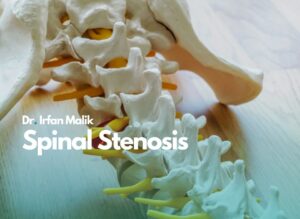Epidural Injection for Chronic Pain Relief
An epidural injection is a procedure used to provide relief from chronic pain in the neck, back, arms, and legs. The injection delivers medication into the epidural space, which is the area around the spinal cord. Here are some facts about epidural injections for chronic pain relief:
- The most common type of epidural injection is a corticosteroid injection, which can reduce inflammation and provide pain relief.
- Epidural injections may be used to treat a variety of chronic pain conditions, including herniated discs, spinal stenosis, sciatica, and arthritis.
- The procedure is typically performed in a hospital or outpatient setting and can be done using either local or general anesthesia.
- The needle is inserted into the epidural space through the back, and the medication is delivered into the area around the spinal cord.
- Epidural injections typically provide relief from pain within several hours to several days, although the length of relief can vary.
- Possible side effects of epidural injections can include headache, nausea, and temporary numbness or weakness in the legs.
- Epidural injections are generally considered safe, but there is a small risk of complications such as infection or nerve damage.
In conclusion, epidural injections are a procedure used to provide relief from chronic pain in the neck, back, arms, and legs. The injection delivers medication into the epidural space, which is the area around the spinal cord. The procedure is typically performed in a hospital or outpatient setting and can provide relief from pain within several hours to several days. Possible side effects and complications of epidural injections should be discussed with a healthcare provider.

The needle is inserted into the epidural space through the back, and the medication is delivered into the area around the spinal cord.
More Conditions
- All
- Brain Conditions
- Spinal Conditions
- Treatment

Cervical Disc Herniation

Spine Base Vascular Malformations

Endoscopic Spinal Surgery

Minimally Invasive Spinal Surgery

Complex Spinal Surgery

Facet Joint Injection

Epidural Injection for Chronic Pain Relief

Carpal Tunnel Surgery

Epilepsy

Spondylosis – Degenerative Spine

Spinal Tumours

Spondylolisthesis

Vertebral Compression Fracture

Myelopathy/ Cord Compression

Spinal Stenosis

Brachialgia/Arm Pain

Lumbar Disc Herniation

Neck Pain

Spinal Cord Injury
